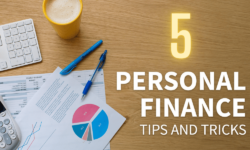Investing for Retirement: The Complete Guide
- Real estate
This is another perfect way to provide you with a steady income in your retirement. You can choose to invest in rental properties or REITs. Suppose you decide to invest in rental properties; you should remember that maintenance costs and other expected costs will be catered to.
Read Also: How to invest in real estate
So before committing your money to real estate, do your calculation and determine if it’s worth it. The best option is to procure property management services, but remember that it will cut into your returns.
You can choose to invest in Real Estate Investment Trusts (REITs), which work more like mutual funds, where you purchase a package containing different properties and assets. REITs are a superb way to diversify your investment portfolio, and it’s best to hold it in a tax-advantaged account such as IRAs.

- Invest in income-producing closed-end funds
An investment company offers this by making its shares available in an initial public offering (IPO). They use the funds raised to buy securities. Money does not flow in and out; instead, it is designed to produce monthly or quarterly income. The returns are in the form of interest, dividends, and in rare cases, as a return of the principal amount.
They are a good investment because the investment company borrows money against securities in the fund to buy more revenue-generating securities, thus allowing them to pay a higher return.
Despite the high returns, do not invest all your retirement money in closed-end funds as they are volatile; invest only a portion of your retirement money.
Suppose you are starting; it’s best to hire an experienced investment manager who is more knowledgeable about these funds to avoid losses.
- Safe investments
Like in every other type of investment, it’s always suitable to have some of your retirement money as a safe backup plan because things happen, and you may not have access to your investment. And all people in their retirement should have an emergency fund.
Your emergency funds will come in handy at that time. View it as a safety net in case of any unforeseen expenses.
- High-yield savings account
This is good if you are risk-averse because your money is held in a federally insured savings account, which is risk-free. However, the interest rate is meager, below 1%, meaning you will make next to nothing in terms of earnings.
It’s best for keeping your emergency money in an accessible account but keep in mind that they have restrictions on the number of times you can withdraw the money in a month.
And after you’ve exhausted your monthly withdrawal time, you will be required to pay a certain amount to draw within the same month.
When investing for retirement, it’s best to work with a financial advisor specializing in retirement planning. Ensure that your financial advisors check these boxes:
- Qualifications: Are they certified and widely recognized? Do they provide retirement planning, and can they assist you in creating a budget?
- How do they get paid?
- What is their track record? Speak to other people working with them before you make your decision.
- Communication: Are they reachable? When the market goes south, investors tend to panic, and at this point, their CFP assurance becomes more critical. Do they update you on your finances, and how many times do they hold face-to-face meetings?
Ensure that before you hit your retirement age, you’ve bought a house because living in a rental only increases your expenses. Furthermore, real estate is a great investment and increases in value.
Buy life insurance; it ensures that your family is catered for in case you pass away suddenly.
Bottom Line
Take advantage of compound interest and start investing early for your retirement to build your nest egg. So what are you waiting for? Take advantage of your young age and start putting away money in the above accounts.
Also, start paying off all the debts and set aside an emergency fund.



